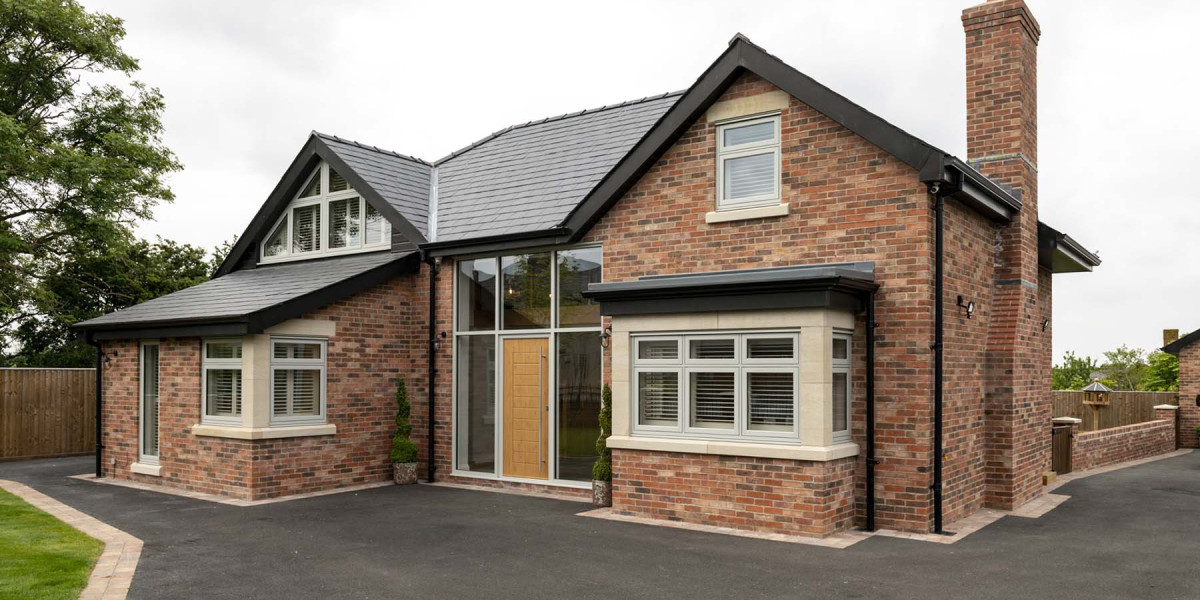What Is Real Estate Owned (REO)?
Realty Owned (REO) is a term in the US signifying residential or commercial property owned by a lender-frequently a bank, federal government firm, or government loan insurer-after a stopped working foreclosure auction.
This shift occurs when a property owner defaults on a loan, and the loan provider unsuccessfully tries to offer the residential or commercial property at auction to recover the loan amount.
The development to REO status typically takes place through a series of steps, starting with the property owner's loan default, often due to missed mortgage payments over a duration.
If the homeowner doesn't clear the exceptional financial obligation or offer the residential or commercial property via a short sale, the lending institution begins a foreclosure process, culminating in an auction. If the residential or commercial property does not offer, the lender reclaims it, ending up being an REO residential or commercial property.
As prospective property owners or investors, it's crucial to understand this procedure. REO residential or commercial properties can present distinct purchasing chances however also bear possible dangers.
Realty Owned Process
Default by the Borrower
The REO procedure starts when a debtor defaults on their mortgage loan. This typically takes place after the debtor has actually missed out on numerous consecutive mortgage payments. The customer receives a notification of default from the loan provider, which initiates the pre-foreclosure period.
During this time, the customer can still prevent foreclosure by paying off the arrearage or selling the residential or commercial property through a brief sale.
Foreclosure Process
If the customer stops working to remedy the default, the lending institution will start foreclosure. Foreclosure laws differ by state, but normally, the loan provider will provide a notification of sale and then offer the residential or commercial property at a public auction. The highest bidder at the auction ends up being the new owner of the residential or commercial property.
Auction and Its Outcome
If the residential or commercial property is not cost the auction, generally due to a lack of high enough bids to cover the outstanding loan, the ownership of the residential or commercial property is transferred back to the lending institution. This is when the residential or commercial property formally ends up being real estate owned.
Acquisition by the Bank
The bank or lender now owns the residential or commercial property and will generally try to sell the residential or commercial property to recover the impressive loan quantity. The bank will deal with the expulsion, pay off tax liens, and may even do some repair work if needed.
Features of REO Properties
Condition of the Residential or commercial property
REO residential or commercial properties are frequently sold 'as is', suggesting that the lender makes no assurances about the residential or commercial property's condition. Because these homes have actually generally gone through a duration of job, they may require considerable repair work or upkeep.
It is, therefore, extremely suggested that potential buyers arrange for a professional examination before acquiring an REO residential or commercial property.
Pricing and Value
REO residential or commercial properties can lure purchasers due to the fact that they typically have lower rates than equivalent residential or commercial properties in the market. The lender typically rates the residential or commercial property listed below market price to motivate a quick sale.
However, potential purchasers ought to think about the cost of repair work and renovations when evaluating the total value and investment capacity.
Title Status
When a bank takes ownership of a residential or commercial property, it will typically clear any previous liens on the residential or commercial property. This indicates that purchasers of REO residential or commercial properties normally get a clean title, simplifying the buying procedure.
Nonetheless, it is wise for buyers to carry out a title search to make sure everything runs efficiently.
Legal Aspects of REO
State Foreclosure Laws
The foreclosure procedure, and thus the shift to REO status, is governed by state laws. These laws figure out how foreclosures are processed, for how long borrowers need to treat a default, and what notices lending institutions must supply.
Understanding these laws can be vital for both lending institutions and prospective REO buyers.
Legal Responsibilities of REO Lenders
Once a residential or commercial property ends up being REO, the loan provider has specific legal duties, including maintaining the residential or commercial property and paying involved taxes and HOA charges.
Lenders are also accountable for offering the residential or commercial property non-discriminately and ensuring that the residential or commercial property's title is clear of any liens.
Potential Advantages of Buying REO Properties
Below Market Value
REO residential or commercial properties are frequently offered below their market price, allowing buyers to get a residential or commercial property at a discounted cost. This can result in instant equity gains for financiers or expense savings for property buyers.
Negotiation Opportunities
Lenders are inspired to sell REO residential or commercial properties rapidly, so purchasers may have more space to negotiate beneficial terms.
This can consist of working out the purchase price, closing costs, or other aspects of the deal, possibly conserving the buyer additional money.
Potential for Profit
If buyers can get an REO residential or commercial property listed below market price and make essential enhancements or remodellings, they can make a substantial revenue when offering the residential or commercial property in the future.
Potential Disadvantages of Buying REO Properties
"As Is" Condition
REO residential or commercial properties are normally offered "as is," indicating the buyer accepts the residential or commercial property in its current condition. This can provide risks, as buyers might discover concealed issues or expensive repair work after purchasing the residential or commercial property.
It is necessary to completely inspect the residential or commercial property or employ the help of an expert home inspector before making a deal.
Lengthy and Complicated Purchasing Process
Buying an REO residential or commercial property often involves more documents and bureaucracy than acquiring a conventional home.
Lenders might have specific requirements or procedures that purchasers require to navigate, which can lengthen the general getting timeline and include complexity to the deal.
Limited Information
Sometimes, lending institutions might require more complete info about the residential or commercial property's history, condition, or any existing liens or encumbrances.
Buyers might need to conduct their own research study or hire specialists to gather all the essential details, which can add time and expenditure to the acquiring process.
Competition
Since REO residential or commercial properties can provide attractive chances, there might be competition from other purchasers, including financiers and skilled property buyers.

This can lead to bidding wars or a greater level of competitors, making it more challenging to protect the residential or commercial property at a beneficial rate.
REO and the Mortgage Lender
Role of the Lender in the REO Process
The lender plays an essential role in the REO procedure, starting the foreclosure procedure upon the borrower's default, acquiring the residential or commercial property if it stops working to sell at auction, and finally, offering the REO residential or commercial property to recuperate the loan quantity.
How Lenders Manage REO Properties
Once the loan provider takes ownership, it becomes responsible for preserving the residential or commercial property. This consists of managing any needed eviction procedures, making standard repairs, paying residential or commercial property taxes, and noting the residential or commercial property for sale.
Some loan providers have internal REO departments, while others outsource these jobs to real estate representatives.
Financial Influence On the Lender
Foreclosure and ownership of REO residential or commercial properties can be expensive for loan providers. They lose the income from the defaulted loan and sustain legal fees, residential or commercial property upkeep, and sales expenses.
Therefore, lending institutions are frequently encouraged to sell REO residential or commercial properties rapidly, often leading to below-market listing prices.
Role of Property Agents in REO Transactions
Listing REO Properties
Property representatives play an essential function in offering REO residential or commercial properties. Lenders frequently work with real estate representatives to list and manage REO residential or commercial properties. These agents deal with tasks such as listing the residential or commercial property, managing offers, and coordinating the closing procedure.
Helping Buyers Navigate the Process
Real estate representatives likewise help buyers interested in REO residential or commercial properties. They assist browse the complicated purchasing process, provide access to residential or commercial property listings, encourage available techniques, and assist with paperwork.
The next areas of this short article will cover the impact of REO residential or commercial properties on the economy, alternatives to REO, the legal elements of REO, and the future of REO residential or commercial properties. Please let me know if you 'd like me to continue with these sections or if any changes to the current content are needed.
REO Properties and the Economy
Effect On Local Real Estate Markets

The existence of REO residential or commercial properties in a regional realty market can have numerous impacts. Sometimes, these residential or commercial properties can decrease the worths of surrounding homes because they might be offered at costs listed below market price.
However, they can also supply affordable housing opportunities and investment possibilities. For financiers, REO residential or commercial properties can be purchased, enhanced, and resold or leased, contributing to neighborhood revitalization.
Influence on National Housing Trends
At the nationwide level, the volume of REO residential or commercial properties can show more comprehensive financial and housing market patterns. High varieties of REOs recommend economic declines, task losses, or lax financing practices.
Conversely, decreasing REO stocks can show an enhanced economy and support the housing market.
Alternatives to REO: Short Sales and Deeds Instead of Foreclosure
Overview and Definitions
Two main alternatives to the REO process are short sales and deeds rather of foreclosure. A short sale is a deal where the lending institution allows the homeowner to offer the residential or commercial property for less than the impressive mortgage balance.
A deed rather of foreclosure, on the other hand, includes the homeowner voluntarily transferring the residential or commercial property title to the loan provider to avoid the foreclosure procedure.
Comparison With REO
These options can provide benefits to both loan providers and borrowers. For lenders, they can lower the time and expenditure of the foreclosure process. For customers, they can decrease the unfavorable influence on credit report.
However, both alternatives need the lending institution's arrangement and have potential tax ramifications for the house owner.
Real Estate Owned (REO) residential or commercial properties are those owned by lenders-commonly banks, federal government firms, or federal government loan insurers-usually due to stopped working foreclosure auction sales.
Understanding the REO process, stakeholder roles, legal elements, potential benefits, and dangers can assist educated choices about buying these residential or commercial properties.
The economy and housing market patterns considerably impact the present state of REO residential or commercial properties.
Technological advances and shifts in the economic and regulative landscape will shape future patterns in REO residential or commercial properties. Therefore, being informed about these modifications is essential for potential investors, purchasers, and realty experts.
Whether you're considering purchasing an REO residential or commercial property as a primary house, a financial investment, or a wealth management method, assessment with monetary and realty professionals is important to comprehend the entire procedure.
This method makes sure informed decisions align with your financial goals. Collaborating with experienced professionals can facilitate this understanding.







